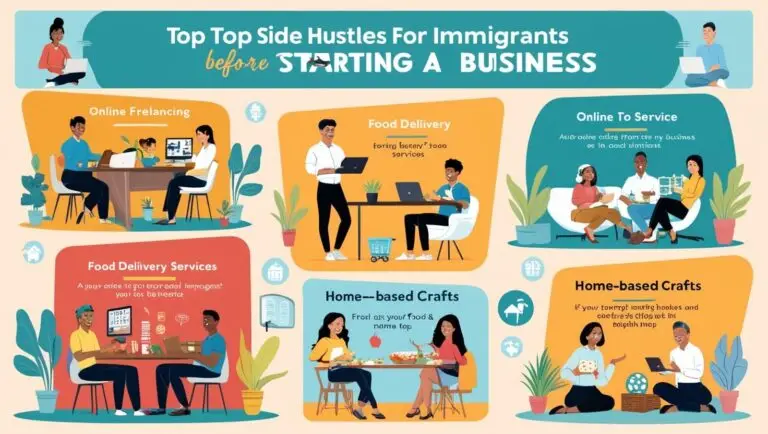Building a professional network is a critical step for entrepreneurs, especially when starting in a new country. Networking can help you access local markets, find collaborators, and secure resources to grow your business. For immigrants, the process can feel daunting due to cultural differences, unfamiliar environments, or a lack of established connections. This guide outlines actionable strategies to help immigrant entrepreneurs establish a strong and effective network.
Why Networking is Essential for Immigrant Entrepreneurs
Accelerates Business Growth
A solid network can open doors to opportunities like partnerships, funding, and clients that are essential for scaling your business.
Provides Support and Guidance
Being part of a community allows you to learn from others’ experiences, avoid common pitfalls, and receive mentorship from those who understand your challenges.
Builds Local Credibility
Networking helps you establish trust and recognition in the local business community, making it easier to navigate markets and industries.
Steps to Build a Strong Network as an Immigrant Entrepreneur
1. Start with Your Immediate Community
- Tap Into Cultural Organizations: Join immigrant-focused or cultural groups that support entrepreneurs from your background. These groups often provide valuable resources, mentorship, and a sense of belonging.
- Connect with Local Chambers of Commerce: Many cities have chambers of commerce or associations dedicated to minority and immigrant businesses.
2. Attend Networking Events and Business Workshops
- Look for events hosted by entrepreneurial hubs, co-working spaces, and industry associations.
- Sign up for pitch competitions or small business expos to meet investors and peers.
3. Leverage Digital Platforms
- LinkedIn: Optimize your profile and actively engage with local groups related to your industry.
- Social Media: Platforms like Facebook or Instagram often have local business groups or communities.
- Industry-Specific Forums: Participate in niche forums or Slack channels to connect with people in your field.
4. Volunteer or Offer Your Expertise
- Volunteer at local events or organizations. This demonstrates your skills while helping you meet people in your field.
- Offer free workshops or mentoring sessions, which can position you as a leader in your industry.
5. Seek Out Local Mentorship Programs
- Join programs like SCORE (in the U.S.) or equivalent initiatives in your country that pair entrepreneurs with experienced mentors.
- Look into business incubators or accelerators that support immigrant entrepreneurs.
6. Collaborate With Local Businesses
- Partner with established businesses to build credibility.
- Consider cross-promotions or joint events to tap into their customer base and expand your reach.
7. Learn the Local Business Culture
- Research local customs and professional etiquette. For example, in some cultures, face-to-face meetings may be more important than emails.
- If needed, take language classes or communication workshops to feel more confident engaging with local professionals.
Overcoming Common Challenges
1. Breaking Out of Comfort Zones
Networking in a new environment can be intimidating. Start small by attending informal meetups and gradually expand your reach.
2. Overcoming Language Barriers
Don’t let language concerns hold you back. Focus on clear and simple communication, and use translation tools or interpreters if necessary.
3. Navigating Cultural Differences
Be open to learning and adapting to local customs while staying true to your unique identity and experiences.
Real-Life Examples of Immigrant Entrepreneurs Building Networks
Adebayo (USA)
A Nigerian fintech entrepreneur who initially struggled with funding. Adebayo joined local tech meetups and industry events, eventually meeting investors who believed in his idea. Today, his fintech app serves thousands across multiple countries.
Zara (USA)
An Ethiopian educator who built her network through community volunteering. She started small by mentoring local students, which helped her connect with like-minded professionals and launch her educational publishing company.
Margaret Busby (UK)
As the UK’s first Black female publisher, Busby leveraged local literary circles and cultural organizations to establish herself as a pioneer in the publishing industry.
Kwesi (UK)
A Ghanaian environmental scientist partnered with local councils and community programs to secure funding and expand his solar energy business.
Conclusion
Building a network in a new country takes effort, patience, and a willingness to step outside your comfort zone. By leveraging local organizations, digital platforms, and cultural connections, you can create a robust support system that drives your business forward. Remember, every interaction is an opportunity to grow your network and solidify your place in the local business community.






